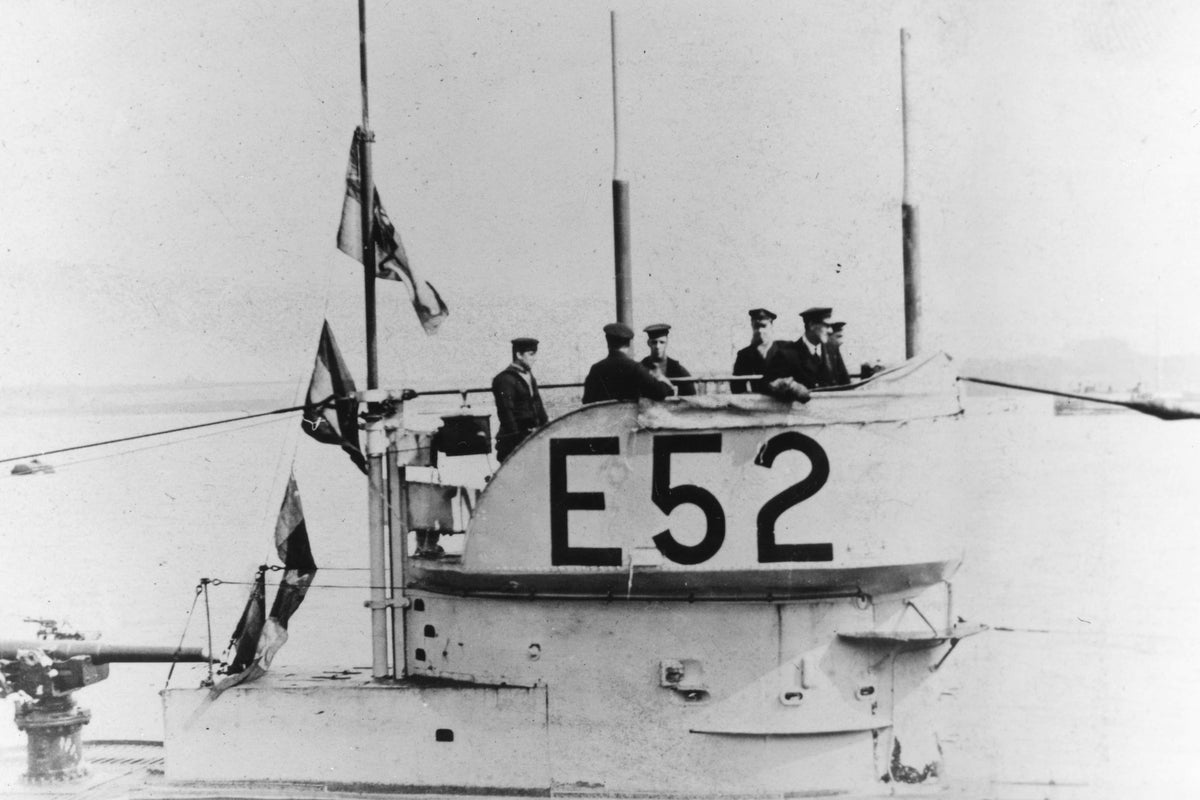
A Royal Navy officer believes he could have solved an urban legend which has intrigued a town for nearly a century.
Since the 1930s, residents of Dartmouth – home to naval officer training for more than 150 years – have been convinced that the wreck of a submarine is buried under a coastal park.
Lieutenant Tom Kemp, an officer from Britannia Royal Naval College (BRNC), thinks he may have solved the mystery.
Lt Kemp, who teaches navigation to future generations of naval leaders at the college, has pored over documents and photographs and thinks he has identified the submarine that was unceremoniously buried alongside rubble and other landfill beneath Coronation Park.
The five-acre park at the foot of the hill occupied by the naval college was once mud flats.
After the end of the First World War, the UK had a surplus of ships and submarines, including scores seized from the defeated Germans.
Many were driven ashore, left up creeks and anchorages and forgotten about as they decayed over decades.
Two German destroyers beached on Whale Island in Portsmouth were forgotten for a century until historians formally identified them.
Coombe Mud and neighbouring Sandquay in Dartmouth became a similar breakers’ yard for unwanted warships, including at least two submarines.
The site was purchased by the local authority in the late 1920s and filled in to create the park, which opened in 1937 in time for the coronation of George VI.
In oral and written histories of the Devon town, residents have since referred to the submarine under the park, sometimes claiming it is a British boat or a German U-boat.
“The story of ‘the submarine under the park’ has fascinated and intrigued visitors to Dartmouth for years – and I count myself among them,” said Lt Kemp.
“This has been a case of following a very cold trail of breadcrumbs. I had been desperately hoping to find a bill of sale or something along those lines with a name on it, but I had to go a little further off-piste to find my answers.”
He ploughed through old documents and records and came up with two names as likely candidates: HMS A8 and HMS E52.
The smaller A8 had been largely broken up by 1923, whereas the larger E52 proved a greater challenge to dismantle.
Without excavating the park and formally identifying parts from the boat, Lt Kemp believes this is as far as he can go.
“The ‘submarine under the park’ has a name and a story worth telling,” he added.
“It’s another unseen but enduring bond between BRNC, Dartmouth and the Royal Navy’s Submarine Service.”







